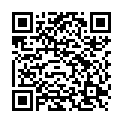|
|
|
| Module code: ZTPM102 |
|
|
4SU (4 hours per week) |
|
5 |
| Semester: 1 |
| Mandatory course: yes |
Language of instruction:
German |
Assessment:
Examination will be announced at the beginning of the lecture by the module owner, repetition every semester.
[updated 19.05.2023]
|
60 class hours (= 45 clock hours) over a 15-week period.
The total student study time is 150 hours (equivalent to 5 ECTS credits).
There are therefore 105 hours available for class preparation and follow-up work and exam preparation.
|
Recommended prerequisites (modules):
None.
|
Recommended knowledge:
Working knowledge of a project management information system – key aspects of Microsoft Project software will be presented in class and should be sufficient for all class assignments and case studies.
[updated 22.08.2016]
|
Recommended as prerequisite for:
|
Module coordinator:
Prof. Dr. Stefanie Jensen |
Lecturer: Prof. Dr. Stefanie Jensen
[updated 06.09.2018]
|
Learning outcomes:
The goal of this module is to teach the basics of operational project management and team organization.
After successfully completing this module, students will have basic knowledge about the concept, development, meaning, scope and methods of project management.
Methodical competence:
Students will be able to identify and transfer theoretical approaches and methods and use them to solve selected project tasks, especially in the technical field.
They will learn to think in a transdisciplinary manner.
Social competence:
Students will become familiar with interaction, communication, motivation and moderation in teams.
[updated 19.05.2023]
|
Module content:
- Introduction: Terms and their meaning (project, project management, magic triangle)
- Project and process panagement success
- Types of projects and examples
- Project processes, project phases and milestones
- Initiating a project (e. g. feasibility)
- Project goals
- Utility analysis, decisions and alternatives
- Project start (project mandate and kick-off)
- Integrating projects into the company organization
- Project organization
- Project participants (e.g. core team, steering committee)
- Stakeholder management
- Risk management
- Project structure plan and work packages
- Estimating effort and dependencies
- Critical path method
- Scheduling and process planning
- Planning resources
- Planning costs
- Project implementation
- Project controlling (measuring progress, milestone trend analysis, earned value analysis, status report)
- Change management
- Project completion, project acceptance, project dissolution, lessons learned
- Agile and hybrid procedures in project management
- Teamwork (Team development, team building, project manager as leader)
- Communication in the project, responsibilities
- Motivation
- Conflicts and crises
- Computer-based project simulation with SimulTrain®
- Software-based: Creating a networked bar chart (Gantt chart)
[updated 19.05.2023]
|
Teaching methods/Media:
- Lecture with integrated tutorial, small group tasks, self-awareness exercises
- Project work in a team
- Documentation and presentation of the project’s progress and its results
- Presentations, videos, role playing, documents, magazines, books, internet research
- Presentation, discussions, role playing, exercises, case studies
- Simulation software SimulTrain® (online project simulation)
[updated 19.05.2023]
|
Recommended or required reading:
- Andler, N.: Tools für Projektmanagement, Workshops und Consulting: Kompendium
der wichtigsten Techniken und Methoden, Publicis, Erlangen, aktuelle Aufl..
- Antons, K.: Praxis der Gruppendynamik. Übungen und Techniken, Göttingen u. a.: Hogrefe, aktuelle Aufl.
- Bohnic, T.: Grundlagen des Projektmanagements: Methoden, Techniken und Tools
für Projektleiter, Gabler, Stuttgart, aktuelle Aufl.
- Bohnic, T.: Projektmanagement: Softskills für Projektleiter, Gabler,
Stuttgart, aktuelle Aufl.
- Pichler, R.: Scrum - Agiles Projektmanagement erfolgreich einsetzen, d.punkt,
aktuelle Aufl.
- Verzuh, E.: The Fast Forward MBA in Project Management, 3. Aufl., Wiley,
Hoboken, aktuelle Aufl.
[updated 19.05.2023]
|

